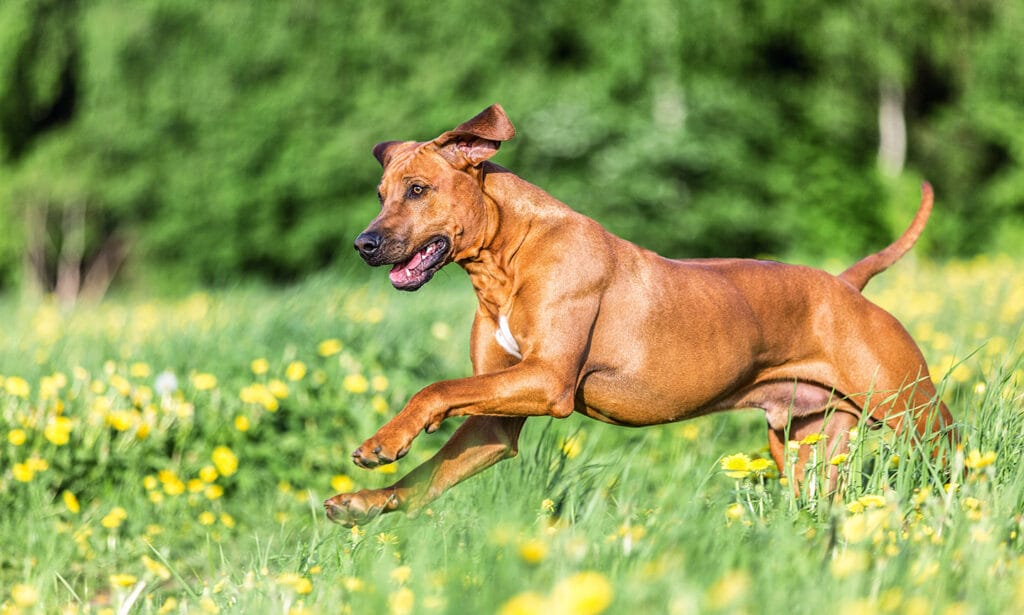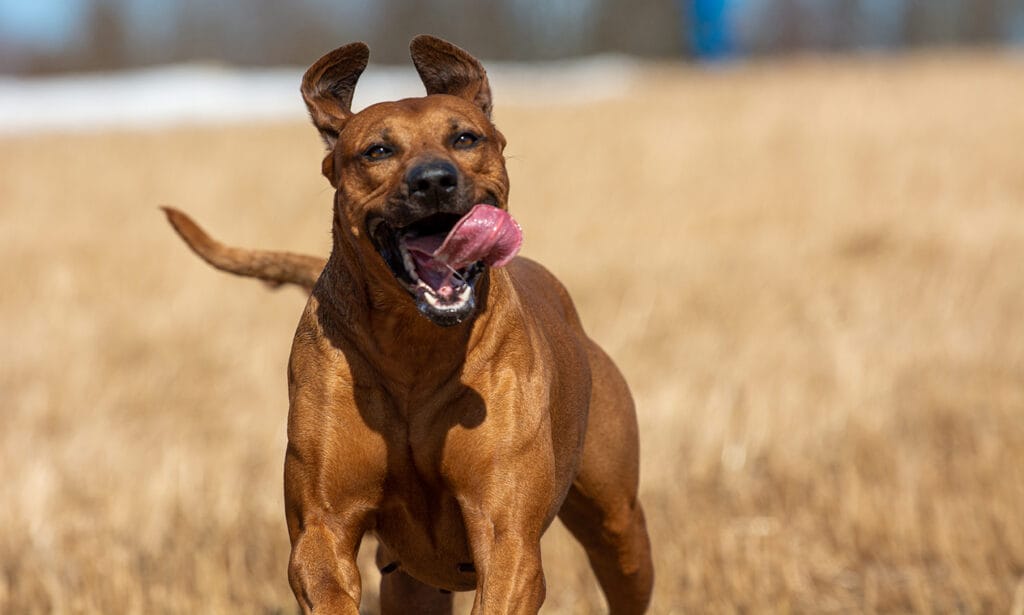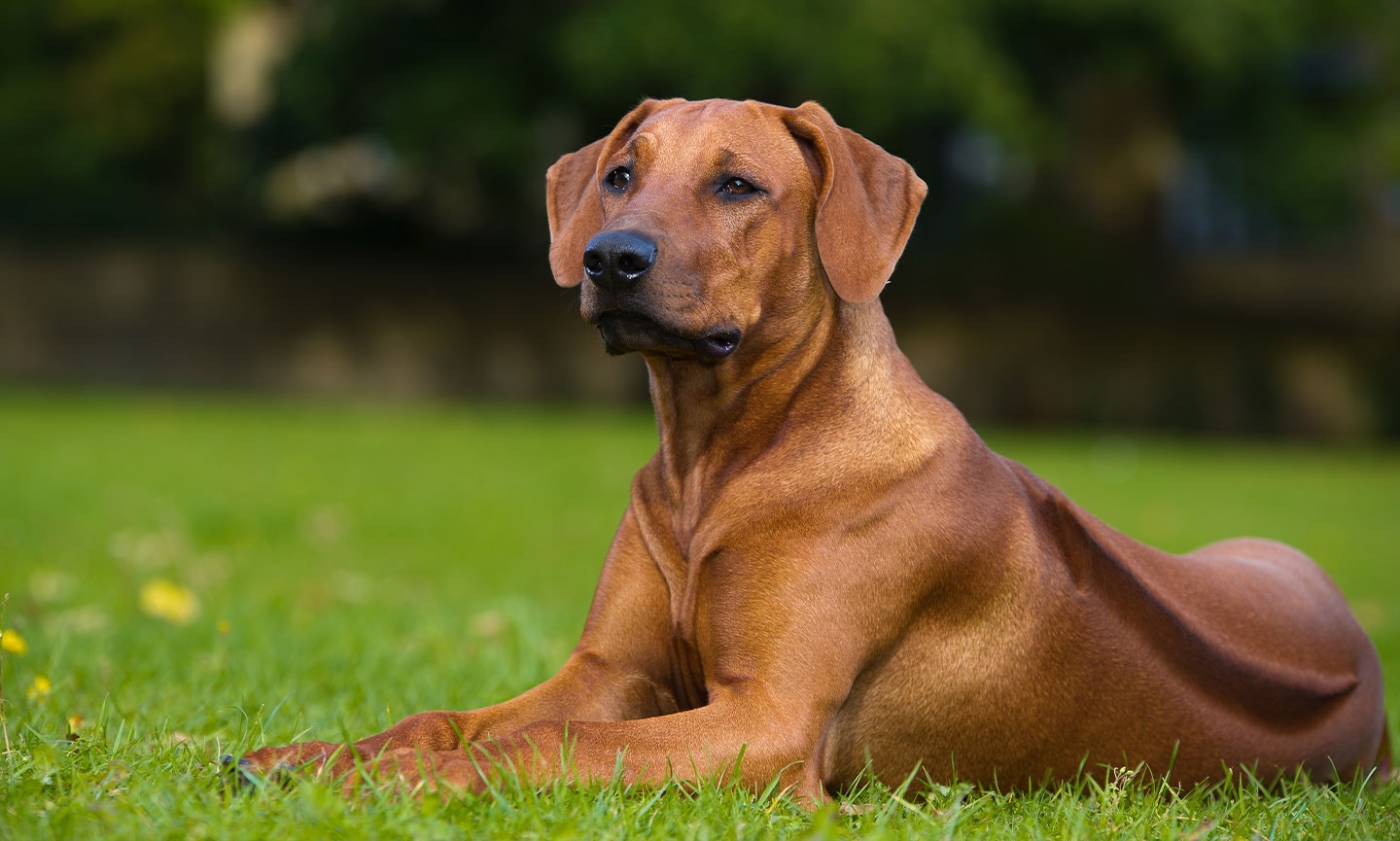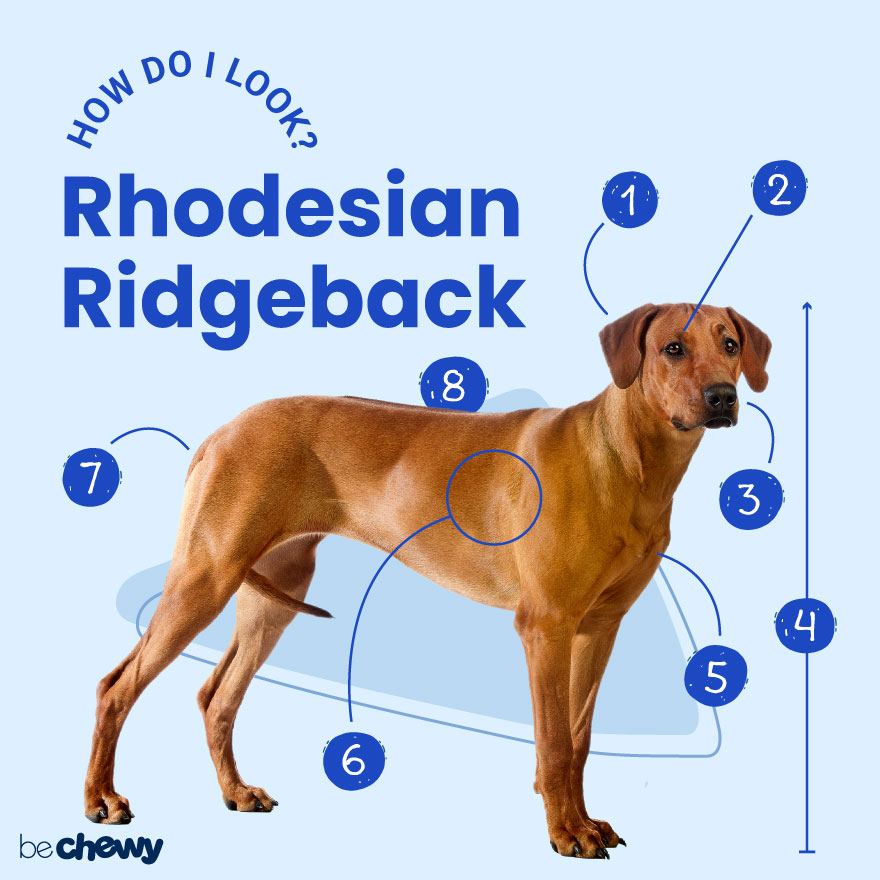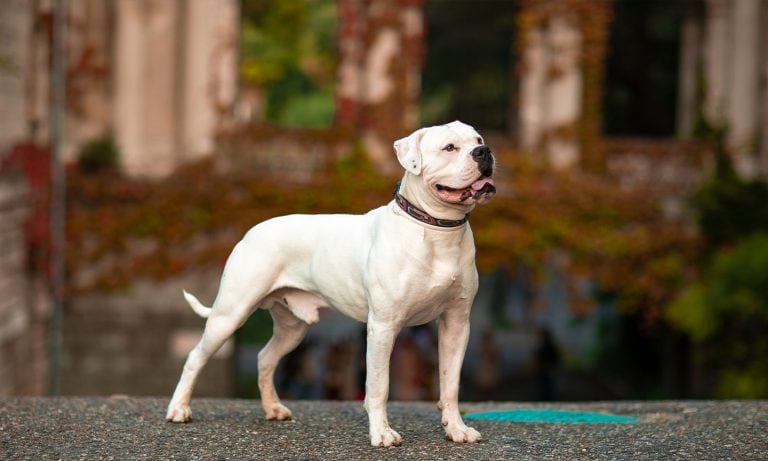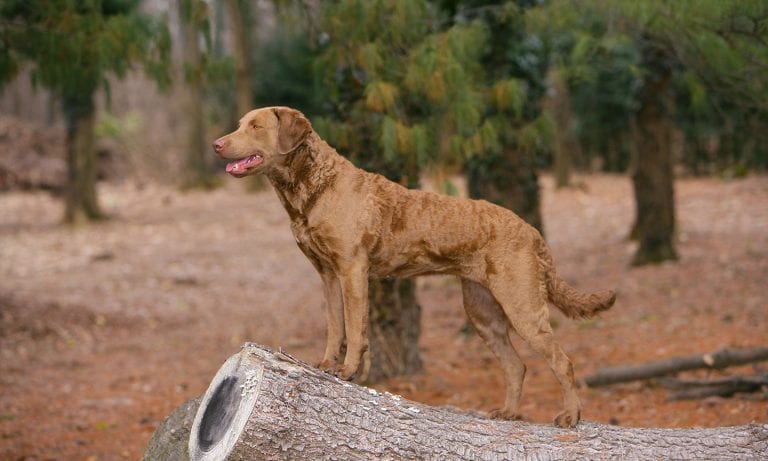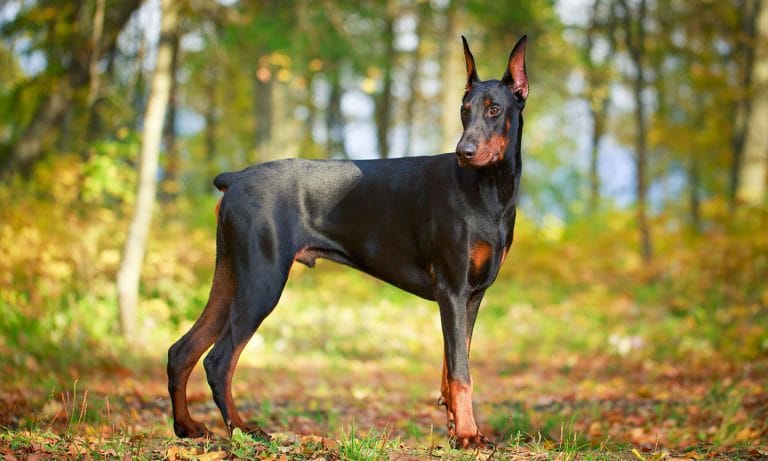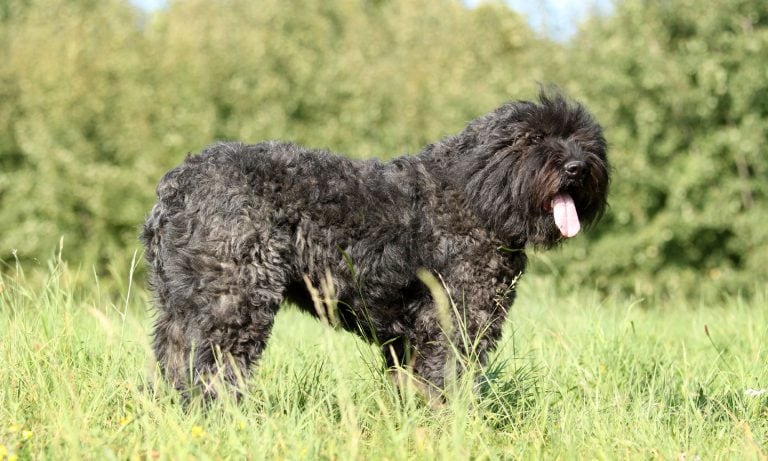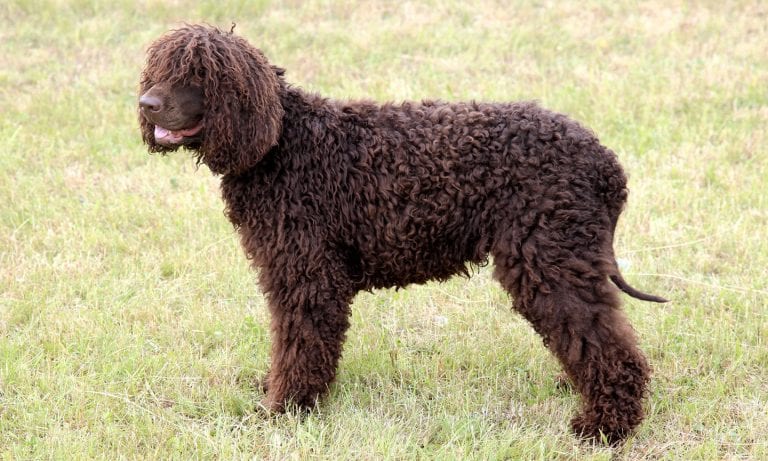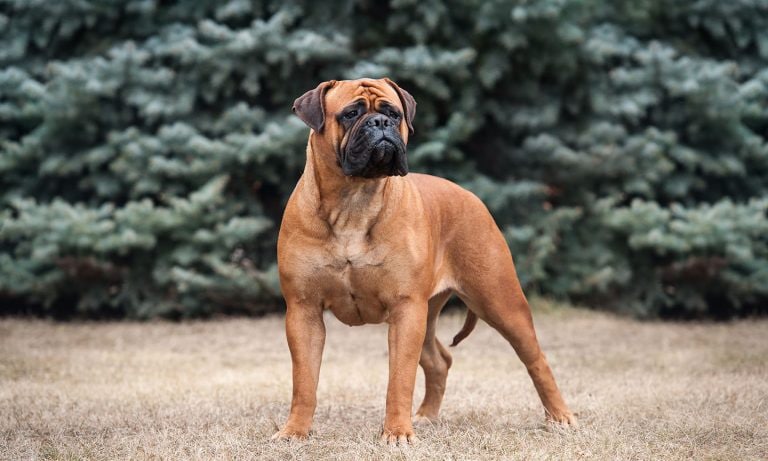You’ll be working up a sweat with a Rhodesian Ridgeback in your life. As natural athletes, Rhodesians are game for just about anything, whether that’s playing fetch, going for runs or hiking up a mountain. These family-friendly pups are affectionate and very protective of their loved ones. With a Rhodesian, you’ve got a loyal, active companion who’s pretty much fearless. But they can have their relaxed moments too, and will be just as comfortable hanging on the couch after a long day of outdoor adventures.
Breed Snapshot
Temperament:
AthleticIndependent-MindedUltimate CuddlerCoat Color:
WheatenLight WheatenLight Wheaten Black NoseLight Wheaten Brown NoseRed WheatenRed Wheaten Black NoseRed Wheaten Brown NoseWheaten Black NoseWheaten Brown Nose
Best For
Athletic and independent, Rhodesian Ridgebacks are best for active and experienced pet parents who love frequent outdoor adventuring and can keep up with a Rhodesian Ridgeback puppy, who need regular exercise and plenty of training. But don't worry, your Rhodesian Ridgeback loves to cuddle, too!
Rhodesian Ridgeback Temperament
Rhodesian Ridgebacks have a gentle, affectionate, caring and dignified temperament. They are independent-minded, but are very loving and loyal toward their two-legged friends and family. Rhodesians rarely show any aggression toward humans. They are generally compatible with other dogs, too, especially if they’ve been in the same household from an early age. However, they have been known to rise to a challenge and stand their ground in a doggy disagreement, particularly with those of the same gender.
The Rhodesian Ridgeback dog breed has low biting tendencies as adults, although as a puppy, they can be quite nippy. Overall, they’re incredibly smart and intuitive. Ridgebacks assimilate information easily with a strong leader (that’s you!) and can be protective of children and other pack members (human or animal), making them ideal guard dogs with a strong bite force. They bark to alert people of danger and threatening situations, but they do not bite or attack unless provoked.
Because they were bred to hunt lions, they have a strong prey drive toward smaller animals that aren’t their own species. In other words: Cats aren’t going to be your Rhodesian’s BFF—rather, these dogs will likely chase them down.
Rhodesians are extremely friendly with people once they get to know them; they can be reserved with strangers. This dog breed is also highly perceptive and sensitive to peoples’ energies. They can be great with kids, but early interactions with them from puppyhood is important. As with most powerful breeds, and dogs in general, you should supervise playtime around toddlers and young children. Rhodesians will be more protective of softer personalities, particularly children and the elderly.
Since they require regular exercise and, because of their prey drive, can be overly curious at times, this breed may frustrate a first-time dog parent. They’re better suited for an active parent who has experience training dogs.
How to Care for a Rhodesian Ridgeback
A Rhodesian Ridgeback dog or puppy will have an adventurous streak, so you’ll want to be well-equipped to keep your explorer in tip-top shape. Because they’re incredibly athletic, regular exercise and good training are musts to ensure they’re exerting enough energy throughout the day. But don’t worry—they’re also super affectionate and require lots of cuddle sessions and quality time with the fam!
Rhodesian Ridgeback Health
Rhodesian Ridgebacks have a life expectancy of 10–12 years, but they can be susceptible to certain types of health issues. It’s good to know in advance what those health problems are, so you can keep your Rhodesian healthy for years to come.
- Hip and Elbow Dysplasia: Dysplasia is a condition that can affect hips and/or elbows. This inherited disease causes joints to develop improperly, eventually resulting in degenerative arthritis. Stiffness and pain in affected elbows or hips may become an issue over time. There are a variety of treatments available for arthritis that can reduce discomfort and pain, including medications, dietary supplements, prescription diets, physical therapy and laser therapy. Weight control is also an important part of managing arthritis. Surgery may be beneficial in certain severe cases.
- Dermoid Sinus: Occasionally, Rhodesian Ridgeback puppies may be born with a birth defect called a dermoid sinus, which is a tube-like opening in the skin that extends into the underlying tissues (it’s also called pilonidal sinus). The most severe forms can extend into the spinal column and connect to the membrane that covers the spine. A dermoid sinus happens when the separation of the skin and the nervous system is incomplete during embryonic development. It occurs most commonly on the dog’s back, neck and upper spine. This condition is heritable, so affected dogs should not be bred. A dermoid sinus may require surgical treatment, depending on the specifics of your dog’s condition.
- Food-Induced Atopic Dermatitis: Rhodesian Ridgebacks are more prone to this condition, which means that allergies to specific foods can trigger some skin issues. The presence of skin rashes, other skin lesions and/or excessive scratching and itching should prompt a veterinary evaluation. Your veterinarian may prescribe medication or suggest a diet trial to diagnose the underlying condition.
- Juvenile Myoclonic Epilepsy: Rhodesian Ridgebacks may be affected by this congenital health issue that causes seizures beginning around 6 months old. The seizures usually occur in the front half of the dog’s body when the pup is relaxed or dozing off to sleep, and are characterized by intense, frequent uncontrolled muscle movements. Consult with your vet if your dog is experiencing seizures or seizure-like episodes. The condition can be treated with medication. Genetic testing is available to identify carriers of this condition, and affected dogs should not be used for breeding purposes.
- Hypothyroidism: Hypothyroidism is one of the most common endocrine disorders in dogs and is caused by decreased activity of the thyroid gland due to thyroid inflammation or thyroid atrophy. Hypothyroidism can be diagnosed through blood testing, so thyroid levels should be a normal part of screening bloodwork as Rhodesians age. Medications are available to manage the condition.
Rhodesian Ridgeback History
The Rhodesian Ridgeback traces their origins to the African country of Rhodesia, now known as Zimbabwe. They were created by crossbreeding the South African Khoikhoi tribe hunting dog and other breeds like Greyhounds and Terriers, which had been transported from Dutch colonists known as the Boers. Rhodesian Ridgebacks soon became experts at navigating the African terrain and being resilient to pests, such as the tsetse fly.
Cornelius van Rooyen, a hunter from Rhodesia, introduced two Rhodesian Ridgebacks into his pack of lion dogs in the late 19th century. He discovered they had no problem holding their own against lions, giving hunters the time they needed to prep and aim their rifles. Rhodesian Ridgebacks could trot alongside men on horseback and scare off other predators like baboons and leopards. They’d run off to catch antelope and bring it back for dinner. Devoted and loyal to their humans, they guarded homes and were great companions for adults and children.
In 1922, big-game hunting was being phased out in South Africa, and the Rhodesian Ridgeback, also called the African Lion Hound, was at risk of becoming extinct. At the time, Ridgebacks ranged in size and appearance from Bull Terriers to Great Danes, so a group of breed enthusiasts organized a meeting to set the breed’s standard. The panel decided that the Dalmatian would be used as the basis for the breed standard moving forward. The Rhodesian Ridgeback was recognized by the American Kennel Club (AKC) in 1955 and is its 110th breed.
So if you’re considering the Rhodesian Ridgeback as a pet, where is the best place to find puppies today? You can find a list of reputable Rhodesian Ridgeback breeders on the AKC website. Depending on the breeder, expect the cost of a Rhodesian Ridgeback puppy to be $700-$2,000. For that price, you’re likely getting a dog who’s been screened for health and temperament issues and may come with pedigree papers. You can also reach out to rescue organizations to adopt a Rhodesian, keep an eye out for the breed at your local animal shelter, or search Chewy’s database of adoptable dogs in your area.
FAQs
Do Rhodesian Ridgebacks shed?
Yes, Rhodesian Ridgebacks do shed on occasion, but in terms of maintenance, their grooming needs are minimal. Make time for a weekly brushing to remove loose hair and to keep their signature wheaten coat nice and glossy. Bathing at least once a month is recommended to freshen up the coat and get rid of dead hairs.
How long do Rhodesian Ridgebacks live?
Rhodesian Ridgebacks typically live anywhere from 10–12 years. The right exercise regimen, proper diet and regular check-ups at the vet will help ensure they have the longest lifespan possible.
Are Rhodesian Ridgebacks good family dogs?
Rhodesian Ridgebacks are great dogs for families with older children but may be a bit too rambunctious for toddlers. They’re perfect companions for older, more active kids who love to spend time outside. Rhodesians are notoriously energetic, so if your family enjoys hiking, jogging and going on camping trips, this pup will be the perfect addition to your outdoors-loving crew.
What are the most popular dog names for Rhodesian Ridgebacks?
The most popular Rhodesian Ridgeback names include Zulu, Menzi, Nandi, Sonto, Narley, Nala, Cooper, Charlie, Duke, Bailey, Nala, Chase, Coop, Dante, Hunter, Ginger, Sonny, Ruby and Simba. Get more dog names.
What are the most common Rhodesian Ridgeback mixes?
The most common Rhodesian Ridgeback mixes are:
- Rhodesian Ridgeback-Boxer mix
- Rhodesian Ridgeback-Labrador Retriever mix
- Rhodesian Ridgeback-German Shepherd mix
- Rhodesian Ridgeback-Mastiff mix
- Rhodesian Ridgeback-Beagle mix
Note: These are not purebred dogs but mixed breeds.
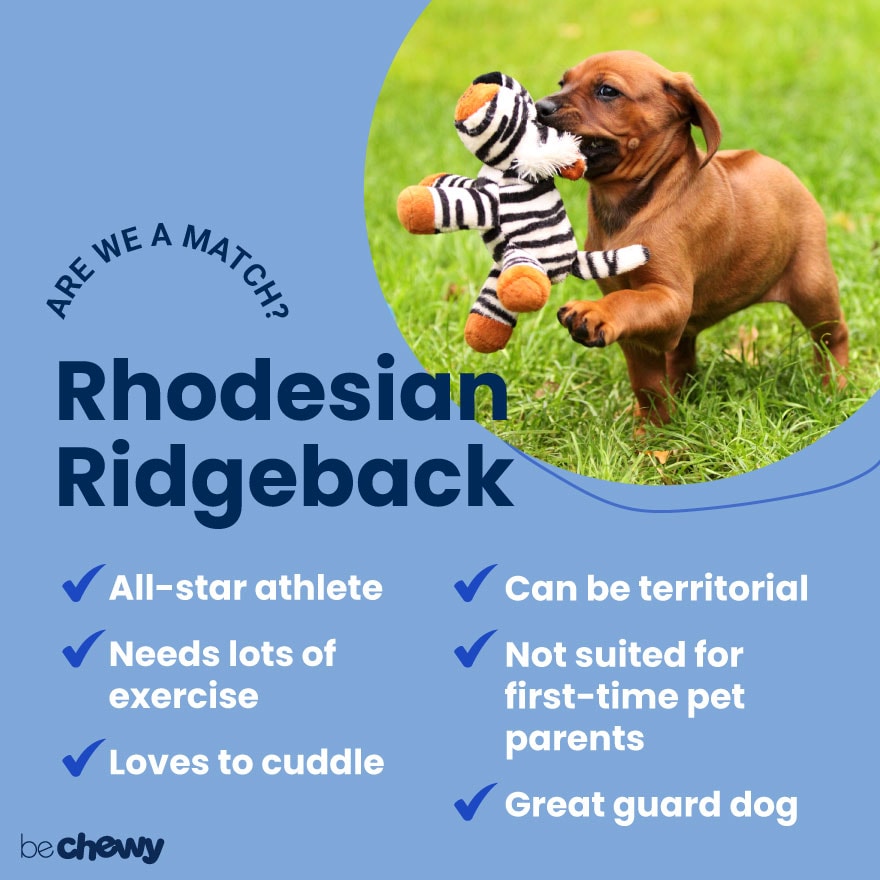
Top Takeaways
Rhodesian Ridgebacks are strong, powerful dogs with a sensitive and caring personality. They’re friendly and sweet to people—especially familiar faces—and are very protective of their families. This slightly rambunctious hound may not be the most suitable for first-time pet parents but will likely thrive with someone who’s raised and lived with dogs before. A Rhodesian is your quintessential partner-in-crime, ready to seize the day and make tons of memories.
Expert input provided by veterinarian Dr. Amanda Williams at Furry Friends Adoption, Clinic & Ranch; and Sparky Serka, head trainer at The Puppy Academy.
Breed characteristic ratings provided by Dr. Sarah J. Wooten, DVM, CVJ, a veterinarian at Sheep Draw Veterinary Hospital in Greeley, Colorado; dog trainer and behavior consultant Irith Bloom, CPDT-KSA, CBCC-KA, CDBC, owner of The Sophisticated Dog, LLC, in Los Angeles; and certified animal behavior consultant Amy Shojai, CABC, in Sherman, Texas.
The health content was medically reviewed by Chewy vets.

Search for Adoptable Rhodesian Ridgebacks Near You
Top Rhodesian Ridgeback Names
These are the top Rhodesian Ridgeback names as chosen by Chewy's pet parents!
Female Names
- Nala
- Ruby
- Luna
- Penny
- Rosie
- Lucy
- Bella
- Willow
- Zuri
- Daisy
Male Names
- Duke
- Moose
- Cooper
- Leo
- Ranger
- Max
- Simba
- Bruno
- Loki
- Odin
Share:


